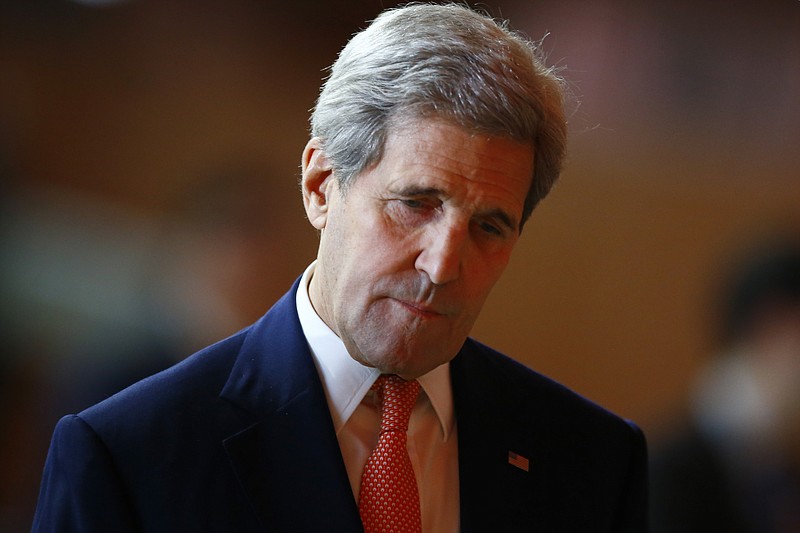"We got the best deal we could."
When have you heard Secretary of State John Kerry, who made the remarks after a global carbon-emissions deal involving some 185 nations was reached in Paris last weekend, use similar words?
If you remembered the nuclear deal with Iran earlier this year, go to the head of the class.
Kerry, after he and U.S. negotiators gave in to point after point after point that President Barack Obama once said would be deal-breakers, said in July the U.S. got the best deal it could in hoping to limit Iran's nuclear activity for a decade. The goal, of course, had been to completely halt the terror-sponsoring country from continuing its nuclear program altogether. And, not surprisingly, the country already has violated the agreement.
For those on the left hoping the Paris climate deal would force the U.S. to reduce its carbon emissions to a given enforceable amount, the agreement must be cold comfort.
It has no enforcement mechanisms and sanctions because, as Kerry admitted, such language would constitute a treaty, and Congress would not go for it.
"If there had been a penalty, we wouldn't have gotten an agreement," he said.
However, Kerry weakly said mandatory reporting every five years "is a serious form of enforcement and compliance." In truth, it's about as valuable as the Iran nuclear agreement that allows Iranians to examine their own nuclear sites to tell the world they're not doing anything wrong.
Countries can and will say what they want about their level of compliance. That's especially likely for heavy emitters like China and India, who have already balked at the goals of the agreement.
Obama, attempting to save face, said the deal would be a job creator. And, curiously, in attempting to bolster his jobs statement about the deal that is supposed to take effect in 2020, he cited jobs that have been created as the economy has weakly recovered from the Great Recession.
As ineffective as the agreement is for the U.S. - Thomas Pyle, president of American Energy Alliance called it "nothing more than a paper tiger" - it still calls for, but does not mandate, wealthy countries to pay at least a combined $100 billion to poor countries to help them mitigate climate change. Kerry, though, said Obama would do whatever possible to get the money, even if Congress balks at it, which it is likely to do.
And the president, in his remaining 13 months in office, is likely to continue to go around Congress with executive agreements in ways that would obligate the U.S. to become less reliant on cheaper fossil fuels and more reliant on more expensive renewable energy. Depending on the specific moves, those actions could both cut jobs and put a strain on the still weak economy.
"The right approach," Sen. John Hoeven, R-N.D., said, "is to stimulate technology development, to encourage that investment, and then as you develop and deploy those new technologies, you get not only better energy but better environmental stewardship."
That's the type of climate deal that makes sense for the United States.
